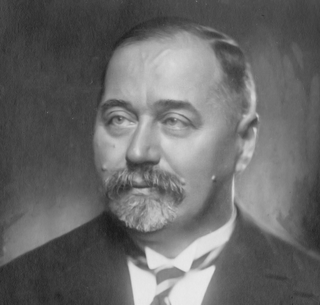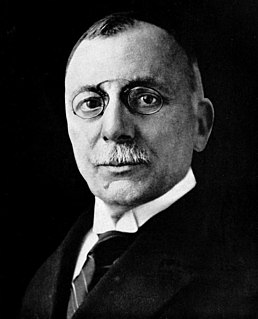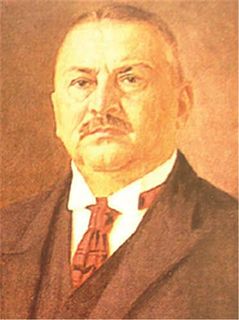The politics of Croatia are defined by a parliamentary, representative democratic republic framework, where the Prime Minister of Croatia is the head of government in a multi-party system. Executive power is exercised by the Government and the President of Croatia. Legislative power is vested in the Croatian Parliament. The Judiciary is independent of the executive and the legislature. The parliament adopted the current Constitution of Croatia on 22 December 1990 and decided to declare independence from Yugoslavia on 25 May 1991. The Constitutional Decision on the Sovereignty and Independence of the Republic of Croatia came into effect on 8 October 1991. The constitution has since been amended several times. The first modern parties in the country developed in the middle of the 19th century, and their agenda and appeal changed, reflecting major social changes, such as the breakup of Austria-Hungary, the Kingdom of Serbs, Croats and Slovenes, dictatorship and social upheavals in the kingdom, World War II, the establishment of Communist rule and the breakup of the SFR Yugoslavia.

The Kingdom of Yugoslavia was a state in Southeast and Central Europe that existed from 1918 until 1941. From 1918 to 1929, it was officially called the Kingdom of Serbs, Croats and Slovenes, but the term "Yugoslavia" was its colloquial name due to its origins. The official name of the state was changed to "Kingdom of Yugoslavia" by King Alexander I on 3 October 1929.

The Croatian Parliament or the Sabor is the unicameral legislature of the Republic of Croatia. Under the terms of the Croatian Constitution, the Sabor represents the people and is vested with legislative power. The Sabor is composed of 151 members elected to a four-year term on the basis of direct, universal and equal suffrage by secret ballot. Seats are allocated according to the Croatian Parliament electoral districts: 140 members of the parliament are elected in multi-seat constituencies. An additional three seats are reserved for the diaspora and Croats in Bosnia and Herzegovina, while national minorities have eight places reserved in parliament. The Sabor is presided over by a Speaker, who is assisted by at least one deputy speaker.

The State of Slovenes, Croats and Serbs was a political entity that was constituted in October 1918, at the end of World War I, by Slovenes, Croats and Serbs residing in what were the southernmost parts of the Austro-Hungarian Empire. Although internationally unrecognised, this was the first incarnation of a Yugoslav state founded on the Pan-Slavic ideology. Thirty-three days after it was proclaimed, the state joined the Kingdom of Montenegro and Kingdom of Serbia to form the Kingdom of Serbs, Croats and Slovenes.

Stjepan Radić was a Croat politician and founder of the Croatian People's Peasant Party (HPSS), active in Austria-Hungary and the Kingdom of Serbs, Croats and Slovenes.
State of Slovenes, Croats and Serbs became merged with Kingdom of Serbia and Kingdom of Montenegro to form the nation of Yugoslavia in 1918. The formation of Yugoslavia began with the formation of the Yugoslav Committee, a collection of mostly Croats, then Serbs and later Slovenes, whose goal was to form a single south Slavic state. In October 1918 the Croatian Parliament declared the Kingdom of Croatia - Slavonia as an independent state, which, in December that same year, incorporated in State of Slovenes, Croats and Serbs, merged with Kingdom of Serbia and Kingdom of Montenegro and created the Kingdom of Serbs, Croats and Slovenes. The kingdom would be renamed to Yugoslavia in 1929, and ruled by Serbian Karađorđević dynasty till Second World War. After the formation of Yugoslavia, Serbia attempted to create a "Greater Serbia" by using police intimidation and vote rigging to establish a Serbian controlled Yugoslavia. From 1929-1941 Serbian controlled Yugoslavia established control over Croatia through Royal Yugoslav police force brutality and assassinations of important Croatians.

Ante Trumbić was a Yugoslav and Croatian lawyer and politician in the early 20th century.

Parliamentary elections were held in Croatia on 29 October 1995 to elect the 127 members of the Chamber of Representatives. The result was a victory for the Croatian Democratic Union, which won 75 seats, an absolute majority. Therefore, this was the last election to date in which a single party won enough seats to govern alone, without the need for parliamentary support from pre-election or post-election coalition partners. Voter turnout was 68.8%.
The Great National Assembly of the Serb People in Montenegro, commonly known as the Podgorica Assembly, was an ad hoc assembly convened in November 1918, after the end of World War I in the Kingdom of Montenegro. The assembly was held by the Montenegrin authorities with the goal of dethroning the Montenegrin Petrović-Njegoš dynasty in favour of the Serbian House of Karađorđević, in order to formalise the unification between the Serbian and Montenegrin kingdoms. It was organized by a committee appointed by the Serbian government. The two opposing sides at the assembly were the Whites who were in favour of an annexation-based unification, and the Greens who were in favour of a confederation-based unification. The assembly concluded the decision to merge Montenegro with Serbia, which subsequently led to the creation of the Kingdom of Yugoslavia soon after.
Matko Laginja was a Croatian lawyer and politician.
The Croatian Bloc or the Croatian National Representation was the name held by the wide coalition of Croatian political parties in the Kingdom of Serbs, Croats, and Slovenes from 1921 to 1929's 6th of January Dictatorship and within the Kingdom of Yugoslavia from 1935 to 1941.

Yugoslavia was a state concept among the South Slavic intelligentsia and later popular masses from the 19th to early 20th centuries that culminated in its realization after the 1918 collapse of Austria-Hungary at the end of World War I and the formation of the Kingdom of Serbs, Croats and Slovenes. However, the kingdom was better known colloquially as Yugoslavia ; in 1929 it was formally renamed the "Kingdom of Yugoslavia".

Vjekoslav Heinzel was the Mayor of Zagreb from 1920 to 1928. He is best remembered for great development projects of the 1920s that significantly expanded the city.
The Vidovdan Constitution was the first constitution of the Kingdom of Serbs, Croats and Slovenes. It was approved by the Constitutional Assembly on 28 June 1921 despite the opposition boycotting the vote. The Constitution is named after the feast of St. Vitus (Vidovdan), a Serbian Orthodox holiday. The Constitution required a simple majority to pass. Out of 419 representatives, 223 voted for, 35 voted against and 161 abstained.

In Yugoslavia, elections were held while it had existed as the Kingdom of Yugoslavia, the first one being in 1918 for the Provisional Popular Legislature of Serbs, Croats and Slovenes and the last being the parliamentary election of 1938. Women were not eligible to vote. After the 1918 indirect ones, the 1920 parliamentary election was the first direct one. Parliamentary elections were held in 1923, 1925 and 1927, while with the new constitution a de facto Lower and Upper House were introduced in 1931. The 1931 elections were not free, as they were handled under a single-course dictatorship, while the 1935 and 1938 were held under limited basic democratic principles.

The Serb National Council is an elected political, consulting and coordinating body which acts as a form of self-government and autonomous cultural institution of the Serbs of Croatia in matters regarding civil rights and cultural identity. The council's main focuses are human, civil and national rights, as well the issues of Serbs of Croatia identity, participation and integration in the Croatian society.
On 21 March 1920 local elections were held in Zagreb, the first ones in the newly formed Kingdom of Serbs, Croats and Slovenes. The incumbent mayor was Stjepan Srkulj from the Croatian Union party, who took office in 1917. Svetozar Delić of the Socialist Workers' Party of Yugoslavia was elected mayor, but his term lasted only six days before being suspended by the government. New elections were called for 18 June 1920.
Local elections for the Zagreb City Assembly were held on 11 December 1921. These were the third elections in Zagreb since the formation of the Kingdom of Serbs, Croats and Slovenes. The Croatian Bloc won a majority and incumbent mayor Vjekoslav Heinzel was reelected as mayor of Zagreb.
The 1927 local elections in Zagreb were held on 4 September, 7 days before the parliamentary elections. The Croatian Bloc coalition won a majority in the City Assembly and reelected Vjekoslav Heinzel as mayor.
The Zagreb Resolution was a political declaration on the need for political unification of the Croats, the Slovenes and the Serbs living in Austria-Hungary. It was adopted by representatives of opposition political parties in the Kingdom of Croatia-Slavonia presided by Ante Pavelić in a meeting held in Zagreb on 2–3 March 1918. The declaration relied on the right of self-determination and called for establishment of an independent democratic state respecting rights of individuals and historically established polities joining the political union. It also called for ensuring cultural and religious equality in such a union. The Zagreb Resolution established a preparatory committee tasked with establishment of the National Council of Slovenes, Croats and Serbs intended to implement the resolution. The National Council was established on 5 October in proceedings described by Pavelić as a continuation of the Zagreb conference that March.










